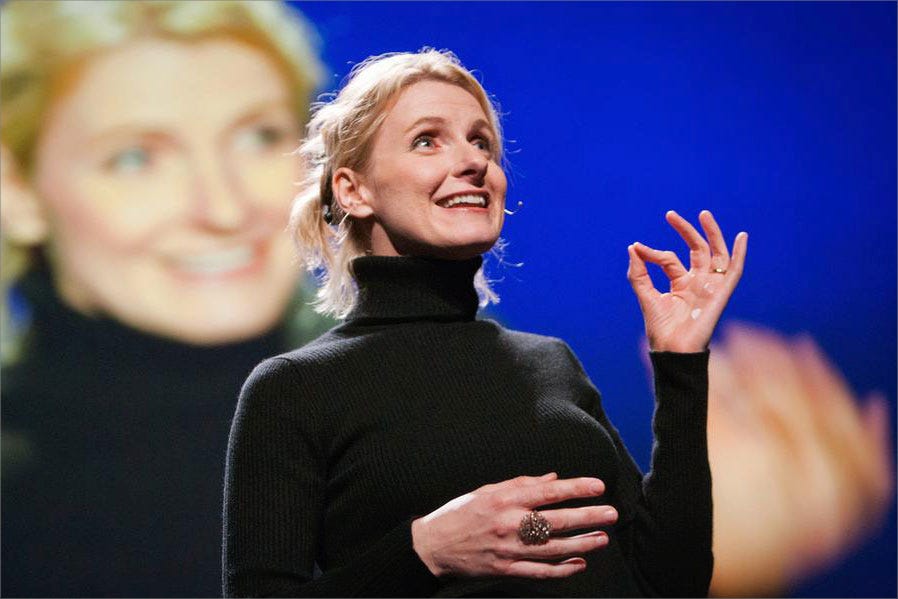Personal Anguish
Have you seen Elizabeth Gilbert at TED Talk? The video has become a bit of a sensation on the web and if you watch it, you’ll see why.
Ms. Gilbert is the author of Eat, Pray, Love. If you didn’t know, TED stands for Technology, Entertainment, Design; it’s a nonprofit organization that brings together speakers from the arts and sciences and politics several times a year.
She was talking about the enormous and unexpected (to her) success of Eat, Pray, Love and how she was struggling with the pressure to follow the book up with something as good or better. What helped her, she said, was to jettison the contemporary concept that the artist is the genius who produces the work and go back to the ancient Roman idea that the artist has the genius (a Latin word).
This entity is not ourselves, but something that lives within us–a muse or guardian creative spirit. Thus, Elizabeth Gilbert says, it’s not we fallible mortals who are doing the work, but some mysterious force within and beyond us. And that takes all the pressure off.
I agree. And I’d like to tilt the concept into a slightly darker channel.
Personal anguish
What happens to us as artists when our personal lives have gone off the rails? When we’re lost or in trouble, when we’ve hurt ourselves or someone we love, when it’s three in the morning and sunrise feels like it’s never going to come?
In my own experience, some of my best work has been done when my personal life was totally underwater.
This seems to make no sense. How can we do good work when it’s all we can do to keep swimming? But we can. Weird as it seems, inner agony never hurt an artist or an entrepreneur.
The Muse is Hardcore
The painter paints and the writer writes from a place that has nothing to do with the personal. Where do ideas come from? How do breakthroughs manifest themselves? This stuff is percolating at a level way beneath heartbreak, illness, deaths of loved ones, addiction, jail terms, being waterboarded. Even our crimes against others and ourselves are absolved on the level where creativity takes place.
The Muse, if she’ll forgive me, is kind of like a mailman. She makes her rounds every day, cruising past our offices and studios and peeking in the window. Are we there at our easels? The Muse likes that. She likes to see us taking care of business. And if we’re there with our hearts breaking or tears streaming down our cheeks, all the better. The Muse says to herself, “This poor bastard is true to me; I’m gonna give him something in return for his loyalty.”
And into our heads pops the solution to Act Two, the bridge to that song we couldn’t lick, the breakthrough concept for our new philanthropic venture.
Kinda scary
I’m not saying pain is good. I’m not advocating screwing up our lives for the sake of art. I’m just lining up alongside Elizabeth Gilbert. Our genius is not us. It can’t be hurt like we can. It’s waterproof. Its heart can’t be broken. It’s going to send the next trolley down the track whether we like it or not.
In a way it’s kind of scary–the relentless, impersonal, almost inhuman nature of creativity and inspiration.
The good news is this: no matter how much pain we’re in, no matter how badly we’ve screwed up our lives, no matter what felonies we’ve committed, we can still find refuge in our work. Like the athlete who makes the decision to suit up, even though his grandfather or best friend has just died, we can have the game of our lives in the midst of excruciating personal agony.



I just want you to know that "The War of Art", and your passionate narration/performance of it is one of the great works of motivational art. Thank you.
Love this! "The Muse, if she’ll forgive me, is kind of like a mailman. She makes her rounds every day, cruising past our offices and studios and peeking in the window."